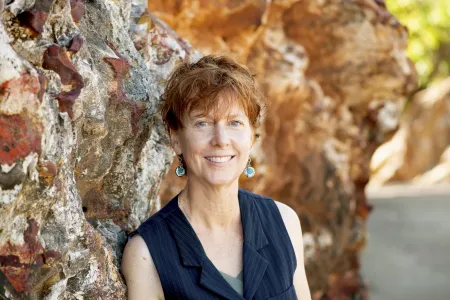News
Results from Territory-wide survey reveals key data about Territorians
Initial findings from a Charles Darwin University (CDU) social survey revealed four in five Territory participants identify as Territorians despite the highly transient nature of its population.
More than 3,000 people across the Territory participated in the My Territory Connections survey, which collected data between November 2021 and June 2022 on the strength and resilience of community connections throughout the Northern Territory.
CDU Northern Institute Demographer, Research Associate Fiona Shalley said the survey helps us to know more about ourselves and what makes for a good life here.
“The survey asked questions that investigate our networks of support with family, friends, and neighbours, as well as with our community leaders, and our attachment to the place where we live,” Ms Shalley said.
“The results reveal our feelings of trust, neighbourhood friendliness and our comfort level with population diversity which underpins community cohesion. This is increasingly relevant to its resilience when facing complex challenges associated with our health, the economy and the natural environment.”
Results showed that two-thirds of participants rated their general well-being as seven or more out of 10. However, around eight per cent rated their well-being at four or below and a similar proportion said they felt lonely most to all the time (8.5 per cent).
Most felt their neighbourhoods were friendly places (83 per cent) but less felt that people actively helped each other out (60 per cent).
“The results of the survey will help the NT Government in the development of its Social Outcomes Framework which brings together key indicators of community and individual wellbeing,” Ms Shalley said.
This was the first time the survey was run in the Northern Territory, and it fills in some of the social data gaps that are not collected by the Australia Bureau of Statistics census.
Ms Shalley said many of those who identified strongly as Territorians indicated that their experience of living in the Northern Territory had changed them in some way.
“We were getting responses such as ‘I think like a Territorian’, and ‘I am accepted by my community…. without any preconceptions about where I might originate from’,” Ms Shalley said.
“On the other hand, many of those who did not identify as Territorians were saying they don’t feel accepted - ‘I've been told I'll always be a southerner’ or ‘I've never put down roots here enough to feel a sense of belonging - it feels temporary being here’.”
“Although there was evidence of participants’ strong feelings attachment to the Territory, 68 per cent also felt a sense of attachment to another part of Australia or another country, and a similar percentage had families living outside the Territory.”
“This may influence people to move out of the Territory at key transition points in their lives, such as when they start a family or decisions around where to retire.”
Ms Shalley said one of the biggest surprises from the research was the high social capital in the Territory measured by social group membership and volunteering with 78 per cent of respondents indicating they volunteered their time, both formally and informally, in the last year.
See the results of the survey here
Related Articles

First “hype cycle” of AI development put tech above humans
Users around the world have rushed to adopt artificial intelligence - especially in safety-critical fields - but a new study has revealed the hype has prioritised technology for technology’s sake instead of human-centred development.
Read more about First “hype cycle” of AI development put tech above humans
Nanoplastics hindering cognitive abilities of fish, international research shows
Nanoplastic exposure can impair the cognitive abilities of fish and could lead to significant impacts on marine species’ ability to survive, according to a new international study.
Read more about Nanoplastics hindering cognitive abilities of fish, international research shows
New project to grow Indigenous aquaculture on one of Australia’s largest islands
An Australian island’s efforts to improve food security and transition into a blue economy will be bolstered by a new project to propagate a nutritious and increasingly popular fish.
Read more about New project to grow Indigenous aquaculture on one of Australia’s largest islands
